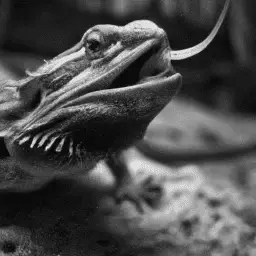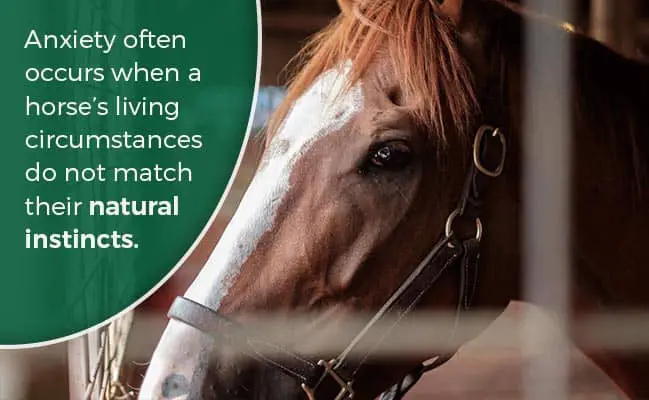In this article, you will discover some effective strategies to help your puppy manage anxiety. Dealing with puppy anxiety can be challenging, but by implementing these techniques, you can create a calming environment and support your furry friend’s emotional well-being. From establishing routines to providing mental stimulation, these tips will help alleviate your puppy’s anxiety, leading to a happier and healthier companion.
Understanding Puppy Anxiety
Puppies, like humans, can also experience anxiety. It is important for every pet owner to understand and recognize the signs of anxiety in their furry friends. By being aware of the symptoms, causes, and types of puppy anxiety, you can provide the necessary support and care to help your puppy overcome their anxious behaviors.
Explaining Anxiety in Puppies
Anxiety in puppies is characterized by a feeling of unease or fear in certain situations. It is a normal response to stress and can be triggered by various factors. While some level of anxiety is common during a puppy’s development, excessive anxiety can negatively impact their overall well-being. It is crucial to address anxiety in puppies early on to prevent it from developing into a long-term issue.
Symptoms of Puppy Anxiety
Just like humans, puppies exhibit various symptoms when they are experiencing anxiety. These symptoms can manifest themselves in both physical and behavioral ways. Some common physical signs include excessive panting, trembling, restlessness, and increased heart rate. On the other hand, behavioral signs might include excessive barking, whining, destructive chewing or digging, attempts to escape, and changes in appetite or sleep patterns. If you notice any of these symptoms in your puppy, it is important to address their anxiety and provide the necessary support.
Causes of Anxiety in Puppies
There are several factors that can contribute to puppy anxiety. Understanding these causes can help you identify the triggers and provide appropriate interventions. Common causes of anxiety in puppies include past traumatic experiences, lack of proper socialization, genetic predisposition, changes in their environment, separation from their mother or littermates, and a lack of routine or structure in their daily lives. By identifying the underlying cause of anxiety, you can work towards alleviating your puppy’s distress.
Types of Puppy Anxiety
Puppy anxiety can be categorized into different types, each with its own unique characteristics and triggers. Recognizing the specific type of anxiety your puppy is experiencing will guide you in tailoring your approach to help them overcome their fears.
Separation Anxiety
Separation anxiety is one of the most common types of anxiety in puppies. It occurs when a puppy becomes excessively distressed when separated from their owner or left alone. The fear of being separated can lead to destructive behaviors and excessive vocalization. Puppies with separation anxiety may also exhibit signs of distress before their owner even leaves, such as pacing, drooling, or refusing to eat.
Noise Anxiety
Noise anxiety is another prevalent type of anxiety that affects many puppies. It occurs when a puppy becomes excessively fearful or anxious in response to loud or unexpected noises. Common triggers include thunderstorms, fireworks, vacuum cleaners, or even loud music. Puppies with noise anxiety may tremble, hide, or try to escape when exposed to loud noises.
Social Anxiety
Social anxiety in puppies is characterized by fear or discomfort in social situations. Puppies with social anxiety may be hesitant or fearful around other dogs, unfamiliar people, or new environments. They may exhibit signs of distress, such as panting, excessive drooling, cowering, or attempting to hide behind their owner. Socialization plays a crucial role in preventing and managing social anxiety in puppies.
Common Anxiety Triggers in Puppies
Understanding the common triggers of anxiety in puppies can help you create a safe and supportive environment for your furry friend. By minimizing these triggers, you can reduce the likelihood of your puppy experiencing anxiety episodes.
Changes in Environment
Puppies are highly sensitive to changes in their environment. Moving to a new home, rearranging furniture, or introducing new household members or pets can cause them to become anxious. It is important to provide stability and predictability in their environment to help ease their anxiety.
New People or Pets
Meeting new people or other animals can be overwhelming for puppies, especially if they have not been properly socialized. Introducing new individuals or pets gradually, in a controlled and positive manner, can help reduce your puppy’s anxiety and build their confidence.
Loud Noises
Loud noises such as thunderstorms, fireworks, or even household appliances can trigger anxiety in puppies. Creating a safe space for your puppy to retreat to during loud noises, providing white noise or calming music, and using anxiety wraps or garments can help alleviate their anxiety during such situations.
Visits to the Vet
Visiting the vet can be a stressful experience for puppies. The unfamiliar smells, sounds, and handling can trigger anxiety in many dogs. Gradual desensitization to the vet’s office, positive reinforcement techniques, and the use of calming aids can help your puppy feel more comfortable during veterinary visits.
Effects of Anxiety on Puppies
Anxiety in puppies can have a significant impact on their overall well-being. It is important to address anxiety early on to prevent it from affecting their physical health, behavior, and development.
Physical Health Problems
Puppies with anxiety may experience various physical health issues as a result of their constant state of stress. These health problems can include digestive issues, decreased immune function, sleep disturbances, weight loss or gain, and increased vulnerability to illnesses. By alleviating their anxiety, you can help promote a healthier and happier life for your puppy.
Behavioral Issues
Anxiety in puppies can manifest in various behavioral issues. These may include excessive barking, whining, destructive chewing or digging, aggression, or even attempts to escape. If left unaddressed, these behavioral issues can worsen over time and become ingrained habits. Proper training and management techniques can help modify these behaviors and improve your puppy’s overall well-being.
Impact on Puppy’s Development
Puppyhood is a crucial period for socialization and learning. If a puppy experiences anxiety during this developmental stage, it can hinder their ability to form positive associations with various stimuli, resulting in long-term fear or anxiety. Timely interventions, such as proper socialization and positive reinforcement training, can significantly impact and improve the development of an anxious puppy.
Diagnosing Puppy Anxiety
Recognizing and acknowledging your puppy’s anxiety is the first step towards finding appropriate solutions. While it can be challenging to diagnose anxiety in puppies, there are several avenues you can explore to seek guidance and support.
Consultation with a Veterinarian
If you suspect that your puppy is experiencing anxiety, it is essential to consult with a veterinarian. They can rule out any underlying medical conditions that may be contributing to your puppy’s anxiety. The veterinarian can also provide guidance on behavior modification techniques, recommend appropriate medications or supplements, and refer you to a qualified animal behaviorist if necessary.
Behavioral Signs to Look Out For
Observing your puppy’s behavior can provide valuable insights into their anxiety levels. Look out for signs such as excessive panting, trembling, restlessness, destructive behaviors, or changes in appetite or sleep patterns. Keeping a behavioral diary can help track patterns and provide a clearer picture of your puppy’s anxiety triggers.
Professional Evaluation
In some cases, seeking the expertise of a professional animal behaviorist may be necessary to accurately diagnose and address your puppy’s anxiety. Behaviorists can conduct comprehensive assessments of your puppy’s behavior and provide tailored behavior modification plans to help manage their anxiety.
Natural Ways to Ease Puppy Anxiety
Addressing your puppy’s anxiety doesn’t always require medication. There are several natural ways to help ease their anxiety and promote a sense of calm and well-being.
Creating a Safe Space
Designating a safe space in your home where your puppy can retreat to when they are feeling anxious is important. This can be a specific room, a crate, or a cozy corner with their bed and favorite toys. Fill the area with comforting scents and provide background noise such as white noise or calm music to create a soothing environment.
Routine and Structure
Puppies thrive on routine and structure. Establishing a consistent daily routine for feeding, exercise, and playtime can help reduce your puppy’s anxiety by providing them with a sense of predictability and security. Regular meal and exercise times also contribute to their overall physical and mental well-being.
Proper Exercise and Play
Sufficient physical exercise and mental stimulation are essential for an anxious puppy. Regular exercise helps release pent-up energy and promotes the release of endorphins, which can boost their mood. Engage in interactive play sessions, puzzle toys, and obedience training to keep their minds occupied and tire them out in a positive way.
Training Your Puppy to Cope with Anxiety
Training plays a vital role in helping puppies cope with their anxiety. By utilizing positive reinforcement techniques, socialization training, and desensitization and counter-conditioning exercises, you can help build your puppy’s confidence and teach them more appropriate ways to handle their anxiety.
Positive Reinforcement Techniques
Positive reinforcement involves rewarding your puppy for displaying desired behaviors. By using treats, praises, and toys as rewards, you can reinforce calm and relaxed behaviors. This helps your puppy associate positive experiences with anxiety-triggering situations, gradually reducing their fear and anxiety over time.
Socialization Training
Socialization is crucial for puppies to develop appropriate social skills and reduce anxiety. Gradually exposing your puppy to different people, animals, and environments in a controlled and positive manner helps them become more comfortable and confident in various situations. Enroll your puppy in puppy socialization classes or arrange playdates with other well-behaved and vaccinated dogs to facilitate their socialization process.
Desensitization and Counter-conditioning
Desensitization and counter-conditioning techniques involve gradually exposing your puppy to anxiety-inducing stimuli in a controlled and positive manner. By pairing the anxiety trigger with something pleasant, such as treats or playtime, you can help your puppy form new positive associations and reduce their anxiety response over time. Patience, consistency, and proper guidance are key to successfully implementing these techniques.
Medication and Supplements for Puppy Anxiety
In some cases, medication or supplements may be necessary to help manage your puppy’s anxiety. It is important to consult with a veterinarian before considering any medication options.
When to Consider Medication
Medication should be considered when your puppy’s anxiety is severe, persistent, or significantly affects their quality of life. If behavioral interventions alone have not yielded desired results, medications may help provide relief. Your veterinarian will be able to assess your puppy’s individual needs and recommend appropriate medication options.
Commonly Prescribed Medications
Selective serotonin reuptake inhibitors (SSRIs) and tricyclic antidepressants (TCAs) are commonly prescribed medications for treating anxiety in puppies. These medications work to balance brain chemicals and reduce anxiety symptoms. Other medications such as benzodiazepines may be used for short-term relief or as a last resort in severe cases.
Use of Supplements for Anxiety Relief
Supplements such as L-theanine, CBD oil, or herbal remedies like chamomile or valerian root may also be used to help alleviate anxiety in puppies. However, it is important to consult with a veterinarian before introducing any supplements to ensure their safety and efficacy for your specific puppy.
Alternative Therapies for Puppy Anxiety
In addition to behavioral interventions and medications, alternative therapies can provide additional support in managing puppy anxiety. These therapies are designed to promote relaxation, reduce stress, and increase overall well-being.
Massage and Physical Therapy
Massage therapy can help release tension, increase circulation, and promote relaxation in puppies. Gentle massaging techniques, such as soft strokes and gentle pressure on specific areas, can help alleviate anxiety and promote a sense of calm. Physical therapy exercises, such as stretching and balancing activities, can also help reduce anxiety and strengthen your puppy’s physical and mental well-being.
Music Therapy
Music therapy has been proven to have a calming effect on both humans and animals. Playing soft, calming music specifically designed for pets can help reduce anxiety in puppies. Classical music or specially composed pet relaxation music can provide a soothing ambiance and alleviate your puppy’s stress.
Use of Anxiety Wraps
Anxiety wraps, also known as thundershirts or pressure wraps, are garments designed to wrap around your puppy’s body snugly. The gentle pressure provided by these wraps mimics a hug, which can help calm anxious puppies. The pressure applied to their bodies can have a comforting effect, reducing their anxiety and promoting relaxation.
Long-Term Care for Anxious Puppies
Caring for an anxious puppy requires ongoing commitment to their well-being. By implementing these long-term care strategies, you can help your puppy manage their anxiety and lead a balanced and happy life.
Maintaining Regular Vet Check-ups
Regular veterinary check-ups are essential for monitoring your puppy’s overall health and well-being. Regular check-ups will enable your veterinarian to assess any underlying medical conditions that may contribute to their anxiety or recommend adjustments to their treatment plan if needed.
Continued Training and Socialization
Training and socialization should continue throughout your puppy’s life to ensure their anxiety remains manageable. Continue exposing your puppy to new experiences, people, and animals in a positive and controlled manner. Consistent training sessions will reinforce their learned behaviors and provide mental stimulation, reducing anxiety levels.
Ensuring a Balanced Diet and Regular Exercise
A balanced diet and regular exercise are crucial for maintaining your puppy’s physical and mental health. Quality nutrition tailored to their age and breed, combined with regular exercise appropriate for their energy levels, will contribute to a stronger immune system and a happier, more content puppy.
In conclusion, understanding and addressing puppy anxiety is essential for providing the necessary support and care to your furry companion. By recognizing the symptoms, causes, and types of anxiety, you can take proactive steps to ease their anxiety, minimize triggers, and help them lead a happier, calmer, and more confident life. Remember, with patience, love, and proper interventions, you can make a positive difference in your puppy’s well-being and help them overcome their anxiety.


